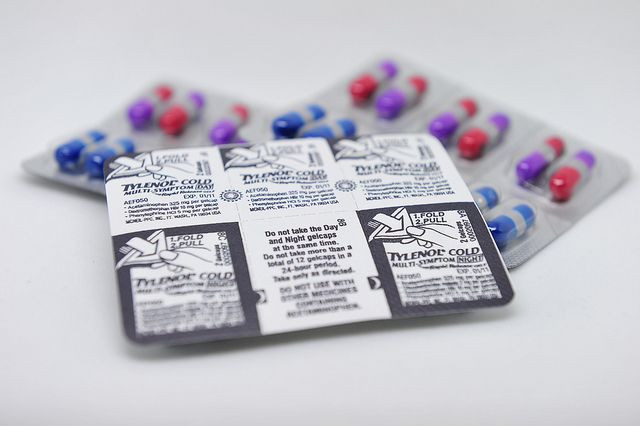Acetaminophen, Tylenol's Active Ingredient, Kills Nearly 500 Americans Every Year

A spate of lawsuits alleging liver damage and death from acetaminophen overdoses has forced Johnson & Johnson to redesign its labeling for Tylenol, clarifying the distance in dosage between helpful and harmful.
Presently, the drug manufacturer is defending itself in federal court from at least 85 different lawsuits from consumers claiming harm and from surviving family members claiming wrongful death, with heartrending anecdotes about the deceased. During the past decade, hundreds of Americans have died after unintentional overdoses of the country’s most popular pain reliever, sold by Johnson & Johnson’s McNeil Consumer Healthcare unit, among others.
Nearly 500 Americans die yearly from acetaminophen overdoses, with 2,600 hospitalizations and some 56,000 emergency room visits, according to a 2004 study from the University of Texas. The drug is also implicated in nearly half of all cases of liver damage, researchers say. At the same time, the Tylenol brand makes more than $1 billion in revenue every year, aside from competitors.
Although the U.S. Food and Drug Administration (FDA) refers to acetaminophen overdose as a “persistent, important public health problem,” regulatory oversight of the drug — safe for adults, children, and infants in the right doses — has been criticized by some as too lax, compared to other developed countries from Europe to Asia. U.S. regulators ruled in 2009 to require a label warning of “severe liver damage” after convening an expert panel in 1977 — 32 years later.
Moreover, the FDA is still finalizing safety rules for acetaminophen as part of that panel’s recommendations, nearly two generations later. Upon ruling to require that warning label in 2009, regulators decided also to introduce new regulations to enhance consumer safety with regard to over-the-counter sales of the drug. Those rules have yet to be implemented.
Rather than restricting sales of acetaminophen or requiring it to be sold over-the-counter only by pharmacies, the FDA has continued a decades-long discussion on the safety of this highly effective drug, with regard to maximum recommended daily dosage. Likewise, the manufacturer has spurned efforts during the past few decades to enhance safety warnings, according to company memos and other court documents obtained through a Freedom of Information Act request by journalists.
Johnson & Johnson’s McNeil unit has also opposed the idea of a government information campaign to educate the public about the drug’s risk, fearing for lost sales revenue, according to investigative work by ProPublica, a non-profit corporation dedicated to public service journalism. In response to queries about acetaminophen’s safety, the manufacturer issued a written statement: “McNeil takes acetaminophen overdose very seriously, which is why we have taken significant steps over the years to mitigate the risk.”
The company also says it has spent millions of dollars on research, education, and poison control centers to advise consumers who’ve overdosed on the drug. The company's researchers also developed an antidote to be taken in case of accidental overdose.
However, investigative journalists say McNeil hasn’t been forthcoming with every bit of information concerning the safety profile of the drug behind its billion-dollar brand, Tylenol. The manufacturer hid attempts to develop a safer alternative to acetaminophen — called “Project Protect” — after the venture failed, spurning even FDA inquiries about the possibility.
In response to questioning from investigative journalists, McNeil objected to the nature of the queries as “clearly biased” in favor of claimants suing the company in federal court.
Although many countries restrict sales, U.S. regulators say the “relatively rare” risk of liver damage or death is outweighed by the benefit of making acetaminophen widely available at not only pharmacy counters but also gas stations, corner stores, and supermarkets. Meanwhile, the number of lawsuits against McNeil continues to grow.
Source: Lee WM. Acetaminophen And The U.S. Acute Liver Failure Study Group: Lowering The Risks Of Hepatic Failure. Hepatology. 2004.



























